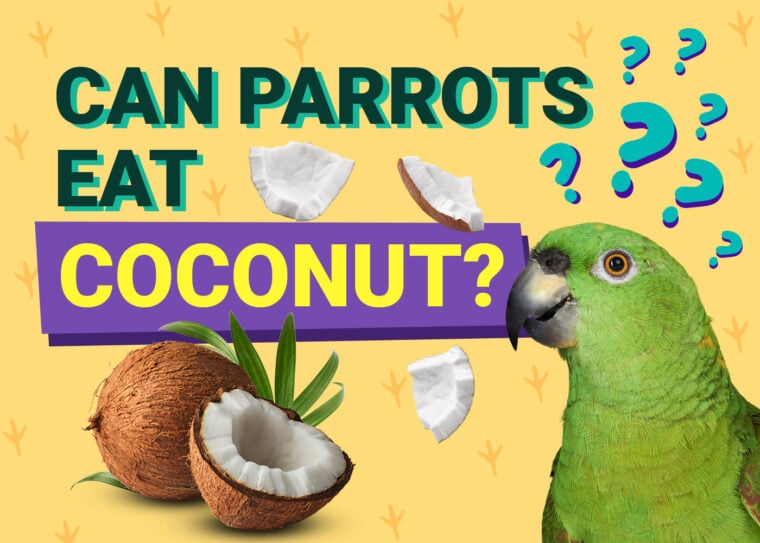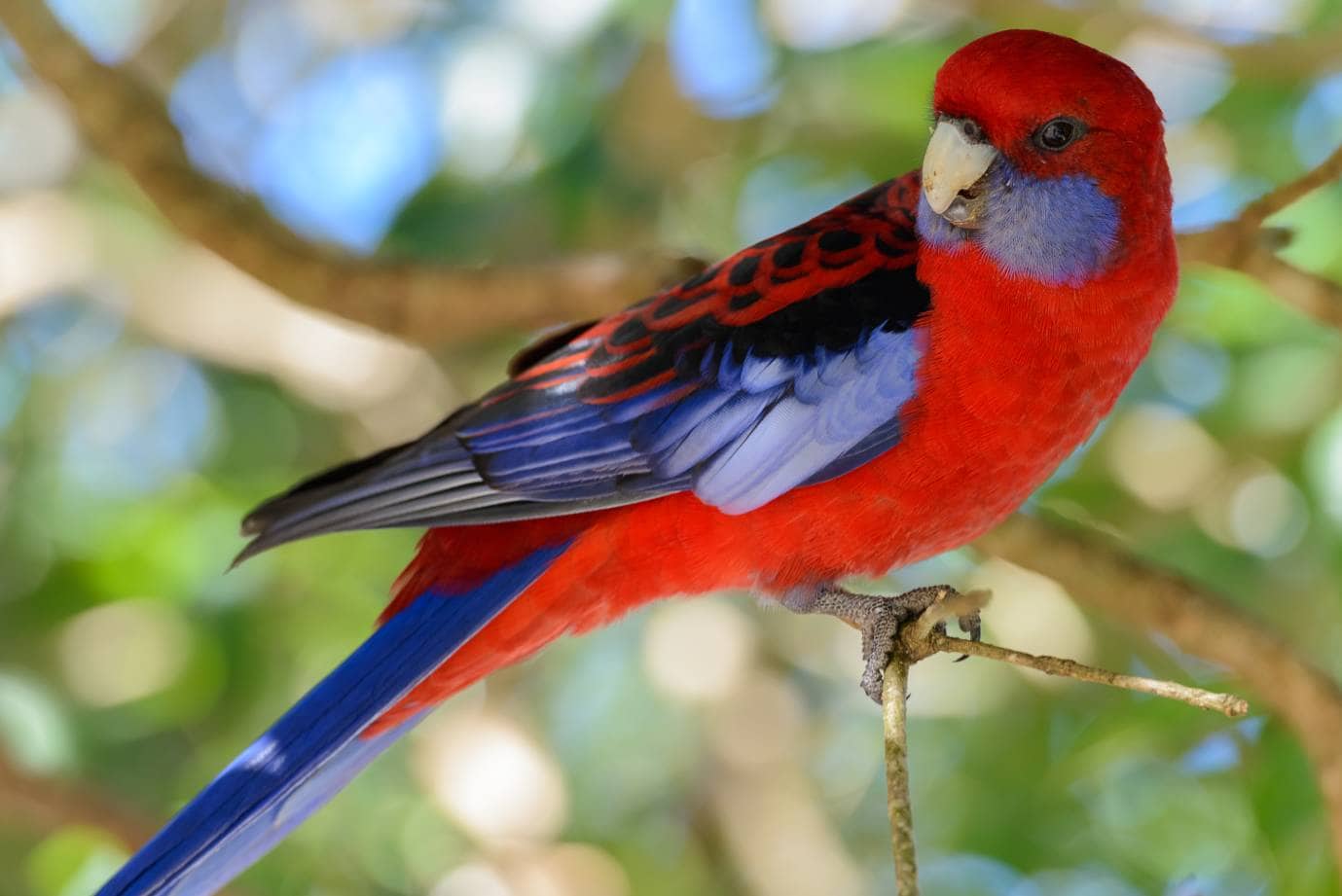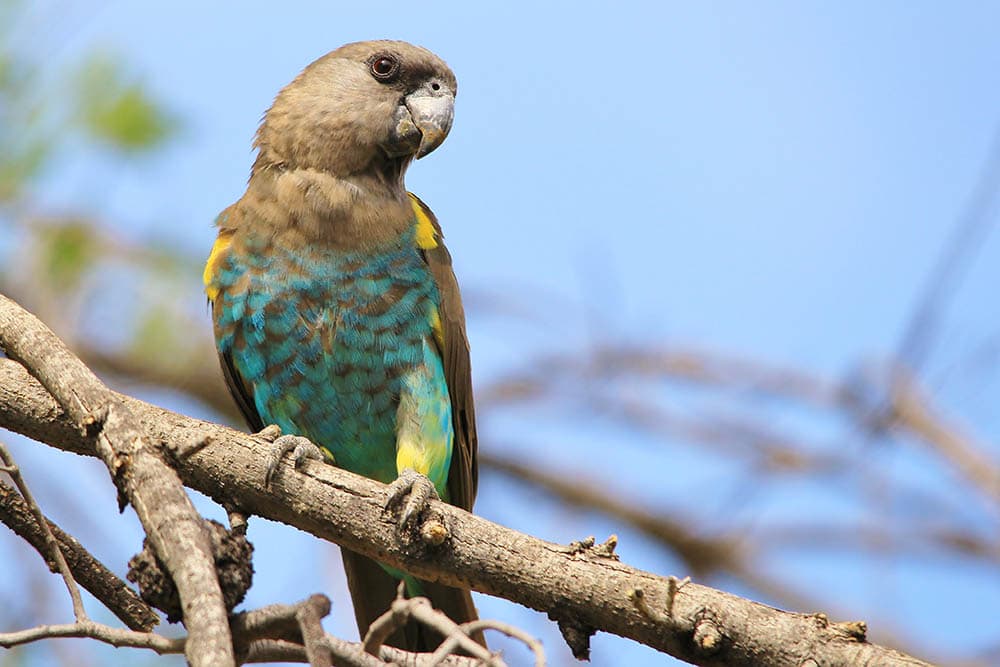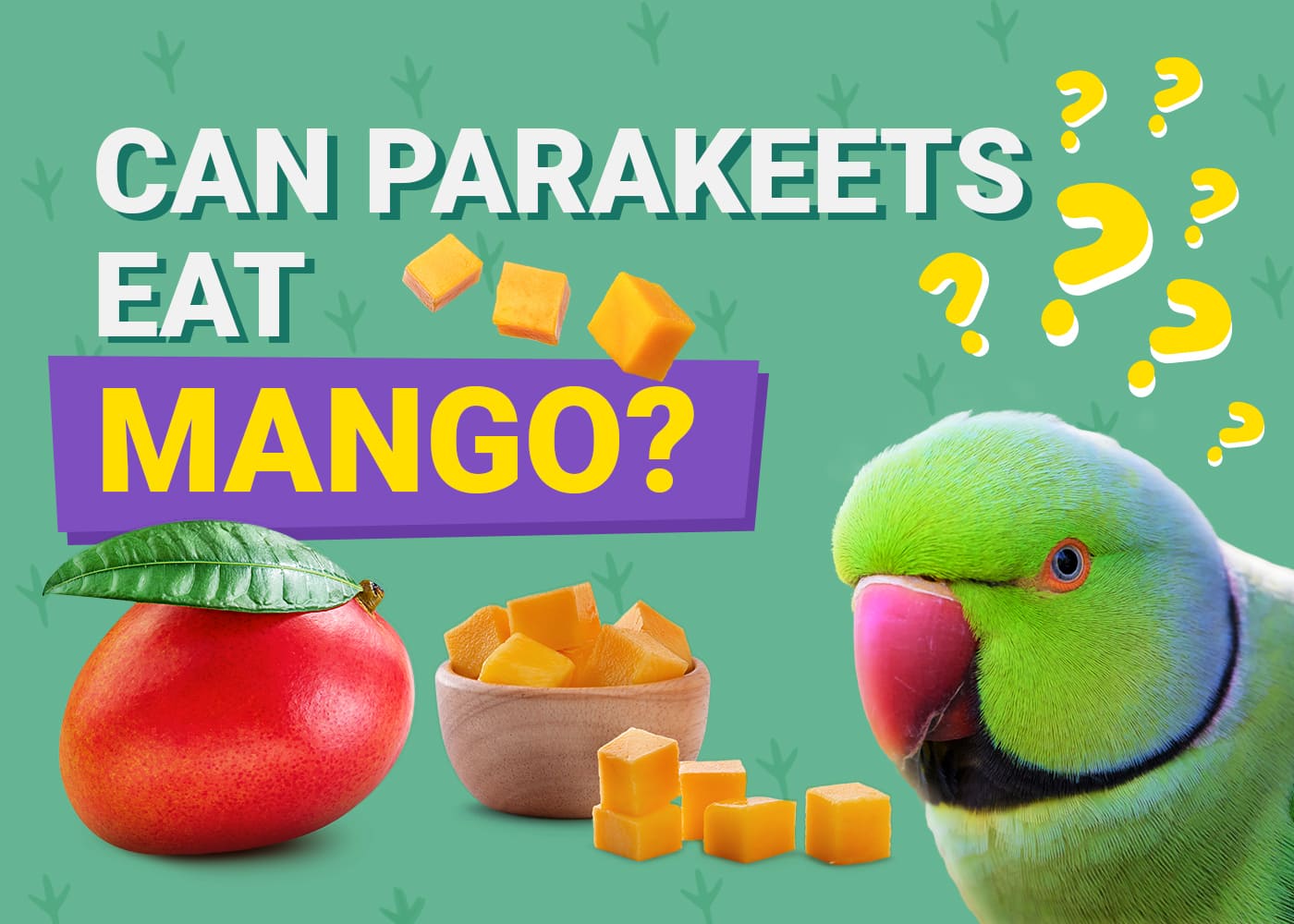
Parrots are tropical birds that originated from the warmer climates of South America, Australasia, and Central America. The birds consume a varied diet of fruits, nuts, and vegetables, but can they eat coconut? Yes, coconut is a healthy addition to your parrot’s diet. Coconuts are classified as dry drupes, but most people unfamiliar with the term can think of the coconut as a nut, fruit, and seed.
Although coconut meat, oil, and flakes, can benefit your parrot, you can consult with your veterinarian to ensure it meets your bird’s specific needs. If your bird has dietary restrictions limiting its fat intake, coconut may be too rich as a frequent snack.
Read on to learn more.
How Does Coconut Benefit a Parrot’s Diet?

Some parrots are finicky about their meal choices, but generally, most parrots love eating coconut. Whether every species of parrot consumes coconut in the wild is debatable. Coconuts are protected by a durable outer husk that is challenging for birds with smaller beaks to penetrate. Parrots with powerful beaks, like the macaw, can easily smash through the husk to feast on the meat inside. Regardless of your parrot’s native diet, you can examine how coconut benefits your bird in these passages.
Coconut Improves Digestion
Like humans, parrots benefit from a diet that is rich in fiber. Coconut is a high-fiber fruit that can improve your bird’s digestion and prevent bowel obstructions that threaten its health. When fiber is digested, it causes the material in the stomach to clump together before it’s released into the small intestine. Regular, solid bowel movements are essential for keeping the bird’s gut healthy and avoiding bacterial infections. Fiber also helps your bird stay full longer and maintain its energy level.
Coconut Helps the Bird’s Immune System
The medium-chain triglycerides (MCTs) present in coconut oil have anti-viral and anti-fungal properties that benefit the bird’s gut health. The antioxidants in coconut can also help the immune system by reducing inflammation.
Coconut Improves Heart Health
Coconuts contain medium-chain fatty acids (MCFAs) that help increase good cholesterol (HDL) and lower bad cholesterol. Keeping the bird’s HDL levels elevated can minimize the chances of heart disease and improve the parrot’s life expectancy. When birds consume MCFA-rich food, the digested material is converted mostly for energy rather than stored fat. Although coconuts contain “healthy fatty acids”, you should check with the vet before adding coconut to the bird’s diet. Too much coconut can cause some parrots to become overweight.
Which Form of Coconut Is Best for Parrots?

The popularity of using coconut milk, flakes, and oil for human diets has increased rapidly in the last twenty years. Whenever people embrace a new diet trend, they often explore how it benefits their pets. Although most pet owners mean well and don’t want to harm their animals, some do not check commercial coconut products for harmful additives, salt, and sugar. So, which type of coconut product is best for your bird?
Fresh Coconut
Using fresh coconut for your parrot treats is the ideal way to avoid harmful preservatives. Prepping a coconut may be intimidating for some, but it’s much easier than you think. First, use a paring knife or screwdriver to poke a hole in the coconut’s softest eye and drain the juice in a container. Next, use a mallet or sanitized hammer to hit the center of the fruit while carefully turning it with your other hand.
As you continue to tap on the coconut’s equator, you’ll start to notice small cracks developing. You may have to turn the nut several times before it cracks open. Use a razor-sharp chef’s knife to separate the coconut into smaller pieces and shave off the husk with an apple peeler. You can dice up the meat and add it to the parrot’s food or arrange the meat on a baking sheet to toast it for coconut flakes.
Coconut Oil
When you’re shopping for coconut oil for your bird, look for organic oil that doesn’t contain added sugar or additives. Most parrots enjoy the taste of coconut oil, but they may not appreciate oil with added flavorings. You can mix in a few drops with their pellets or add them to the water dish.
Coconut Flakes
The simplest way to feed your parrot coconut is to purchase flakes from the grocery store. However, some brands add sugars and preservatives to their flakes, and you should only give your bird flakes that list coconut as the only ingredient.
Which Diet Is Best for Your Parrot?

Although many parrot owners rely heavily on seeds to feed their pets, an all-seed diet does not provide the nutrients birds need to live long, healthy lives. Vitamin A is vital to the parrot’s immune system, but it’s not present in the commercial seed. Avian veterinarians recommend only giving your parrot seeds as an occasional treat to prevent a vitamin A deficiency.
Pellets, supplemented with fruits (like coconut) and vegetables, should be the primary source of the bird’s nutrition. Inspect the pellets’ nutritional information and look for these essential vitamins:
Typically, darker-colored fruits and vegetables are healthier for your parrot. Leafy greens, raspberries, blueberries, pitted cherries, carrots, mint leaves, and celery in moderation are excellent choices for supplementing the bird’s pellet diet.
What to Avoid
When someone posts a video of a parrot eating a French fry or a chocolate cookie, it may seem humorous, but junk food is even more harmful to parrots than people. Excessive amounts of salt, sugar, and preservatives in junk food can shorten the bird’s lifespan significantly. Avoid processed food altogether, and keep your parrot away from chocolate, coffee, onions, garlic, and artificial sweeteners.
Parrots love the taste of seeds, but unfortunately, some seeds are toxic. Although they can consume the flesh of most fruits, they cannot tolerate the seeds or pits from these fruits and vegetables:
Unlike the other fruits on the list, the meat of the avocado is also harmful to parrots. Parrots indulging in leftover guacamole or avocado chips can succumb to respiratory illnesses and even heart failure.

Final Thoughts
Depending on the species, your parrot can live up to 50 years or more. Large, healthy parrots can approach the century mark before passing away, but their longevity relies on a balanced diet. Adding coconut oil, meat, or flakes to your parrot’s food promotes healthy digestion, a robust immune system, and cardiovascular efficiency.
When you’re browsing through the various commercial coconut oil and flake products, look for all-natural items that are free of preservatives and chemicals. Avoid desiccated coconut as it might cause bloating and discomfort. Desiccated coconut tends to expand inside the parrot after consumption by absorbing moisture. Canned coconut milk and water often contain the harmful artificial sweetener xylitol and should be avoided at all costs. Organic coconut products are suitable for your parrot, but you can use fresh coconuts if you’re unsure about a name-brand product. Whichever type of coconut you use, your feathered friend is sure to appreciate the new addition to the menu.
- Related read: Meyer’s Parrot
Featured Image Credit: Couleur, Pixabay









